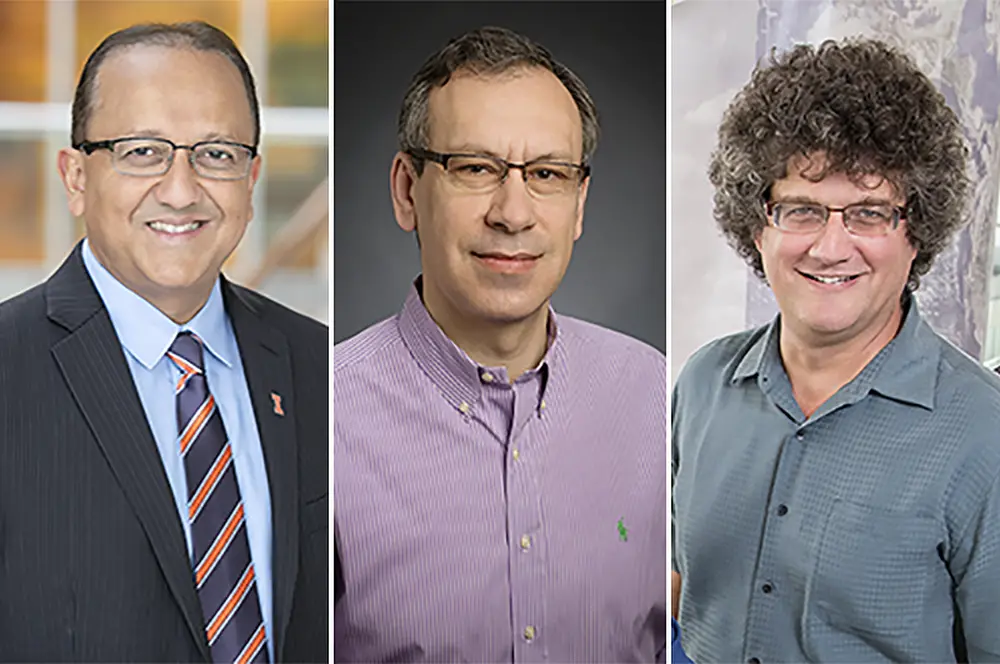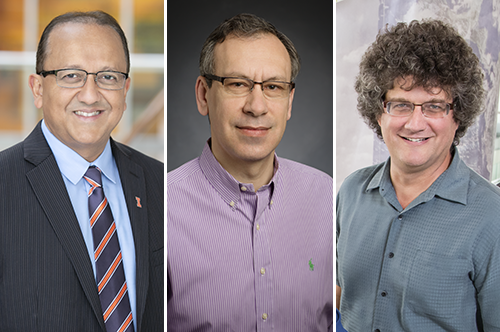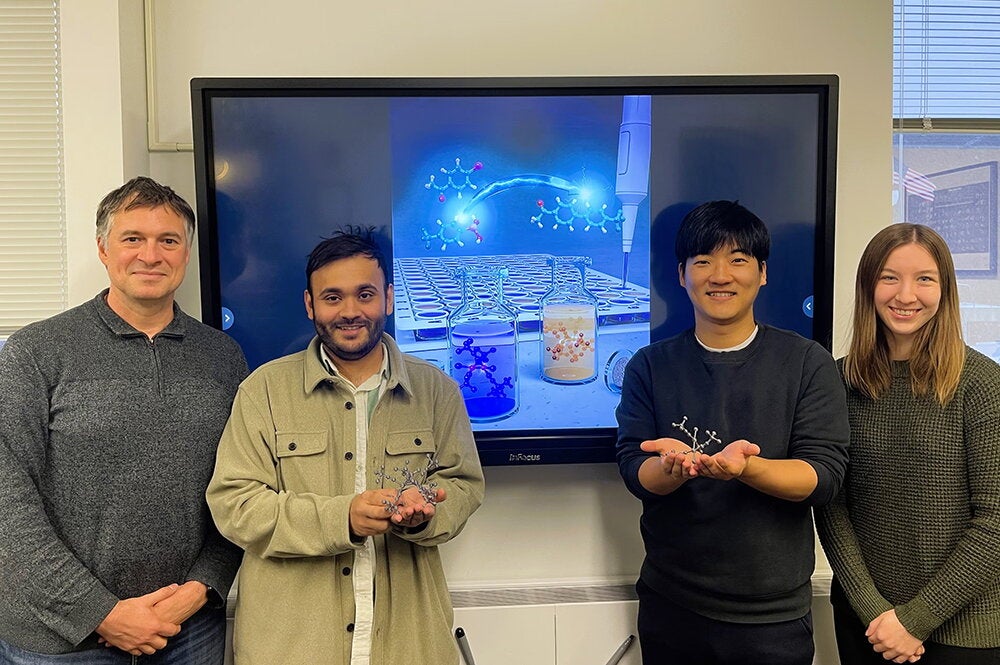

An interdisciplinary team of researchers from the Departments of Chemistry, Electrical and Computer Engineering, and Bioengineering have joined forces to develop a highly sensitive neural probe to monitor brain chemistry. The team received $3 million from the National Institutes of Health's (NIH) BRAIN Initiative (Brain Research through Advancing Innovative Neurotechnologies) to develop a silicon platform technology for monitoring a broad range of neurochemicals in the brain with high spatiotemporal resolution and minimal tissue damage.
The research team, which is led by professors Jonathan Sweedler (chemistry) Yurii Vlasov (ECE), and Rashid Bashir (bioengineering), will combine its expertise in silicon nanotechnology, monolayer-thin graphene membranes, pico-Liter droplet generation, and advanced mass spectrometry to record neurochemicals transients. Technology development will span across the Illinois campus and will involve researchers at the Micro and Nanotechnology Laboratory, Materials Research Laboratory, Micro-and Nanomechanical Systems Laboratory, Beckman Institute for Advanced Science and Technology, as well as the School of Chemical Sciences.
“Monitoring the neurochemical concentration gradients in the brain using mass-spectrometry methods will be essential so that we can discover what chemical changes occur in specific brain locations, enabling us to provide better treatments and to understand the underlying mechanisms of neurological diseases,” said Sweedler, the James R. Eiszner Family Endowed Chair in Chemistry and director of the School of Chemical Sciences.
“This project holds a promise to make a strong impact on our understanding of the brain since the developed instrumental platform will allow monitoring concentration gradients of various neuromodulators and drugs from precise brain location," said Vlasov, a Founder Professor of Engineering. "This could enable advances in fundamental systems neuroscience, as well as accelerate development of new treatments for neurological diseases.”
According to Bashir, this newly funded work is an example of cross-disciplinary projects which cross the borders of schools and departments and have a potential to become a manufacturable technology to impact society. “I believe that the technology development, if successful, will have a strong impact on science and possibly even on health care," noted Bashir, the Grainger Distinguished Chair in Engineering and the college's dean. "With our newly established Carle Illinois College of Medicine, the results of this development can be on a short path to large animal and potentially human use.”


